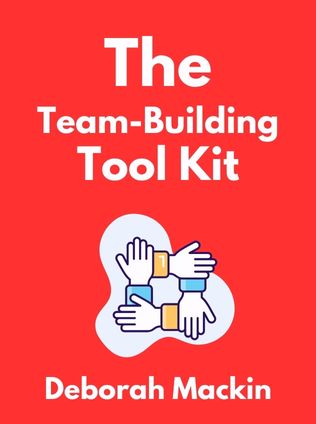
The Team-Building Tool Kit
Tips and Tactics for Effective Workplace Teams
By Deborah Mackin
Published 08/2007
About the Author
Deborah Mackin is a renowned expert in team building and organizational development. She serves as the President of New Directions Consulting in North Bennington, Vermont, bringing over 20 years of international experience in building workplace teams. Her consultancy work has benefited clients such as Delta Faucet Company, Aventis (Sanofi Pasteur), and Hemmings Motor Company. Mackin’s expertise and practical approach have established her as a trusted advisor for organizations seeking to harness the full potential of their teams.
Main Idea
The Team-Building Tool Kit by Deborah Mackin is a comprehensive guide aimed at enhancing team performance through practical tools and strategies. It addresses critical aspects such as accountability, decision-making, conflict resolution, and effective team meetings. The book highlights the importance of leadership support, clear goals, and structured processes to nurture high-performing teams. Mackin’s insights offer valuable guidance for transforming team dynamics and achieving organizational success.
Table of Contents
- Introduction
- Getting Started
- Types of Teams
- The Basics of Team Functioning
- Team Meetings
- Team Behavior
- Team Accountability and Decision Making
- Team Problem-Solving Process and Tools
- Team Scoreboards and Performance Assessments
- The Teaming Road Map
Getting Started
Team building begins with a clear decision by leadership to encourage, and even require, employees to operate in teams. Leadership must recognize that teaming is a cultural change involving:
- Developing awareness of teams as both a tool and a cultural shift.
- Acquiring knowledge and understanding about how teams function.
- Learning skills to perform new teaming behaviors.
- Internalizing attitudes and beliefs so that teaming becomes a way of life.
The role of leadership is critical through each of these steps. Lack of leadership support remains the number one cause of team failure.
Types of Teams
As organizations embark on team-building, they must decide on the type of teams to create. Teams should be formed only when an achievable common goal can be identified. The various types of teams include:
- Multifunctional Teams: Identify major areas of organizational concern and articulate needs. These teams include members from various levels and functional areas.
- Task Force or Cross-Functional Teams: Bring together individuals from multiple work areas to address problems, concerns, or opportunities.
- Improvement Teams (Functional or Value Stream): Focus on problem-solving within departmental or value stream boundaries and have a short lifespan.
- Self-Directed Work Teams (Functional or Value Stream): Work together on an ongoing basis without direct supervision, responsible for a whole work process or segment.
The Basics of Team Functioning
The first step in forming a team is to define its goal based on the purpose or problem to be addressed. The founding person or body drafts the team's preliminary charter, including the mission, goals, expected outcomes, time requirements, and authority level. The team is responsible for determining the "how" (the approach).
Determining Level of Authority and Responsibility
When a team is created, the coach or team sponsor must clearly define its level of responsibility and authority. A RACI chart is an effective way to detail authority:
- R (Responsible): The "doer" of the task.
- A (Accountable): The person or team ensuring the task is completed.
- C (Consulted): The person/team consulted before performing a task.
- I (Informed): The person/team informed that a task is completed.
Clear limits on the team's authority should be established at the beginning and expanded as the team demonstrates maturity and focus.
Key Components in High-Performance Teams
High-performance teams exhibit the following characteristics:
Sign up for FREE and get access to 1,400+ books summaries.
You May Also Like
How To Win Friends and Influence People
The All-Time Classic Manual Of People Skills
By Dale CarnegieQuiet: The Power of Introverts
The Power of Introverts in a World That Can't Stop Talking
By Susan CainThe Lean Startup
How Today's Entrepreneurs Use Continuous Innovation to Create Radically Successful Businesses
By Eric RiesWho Moved My Cheese?
An Amazing Way to Deal with Change in Your Work and in Your Life
By Spencer Johnson, M.D.Make Your Bed
Little Things That Can Change Your Life...And Maybe the World
By William H. McRaven



















